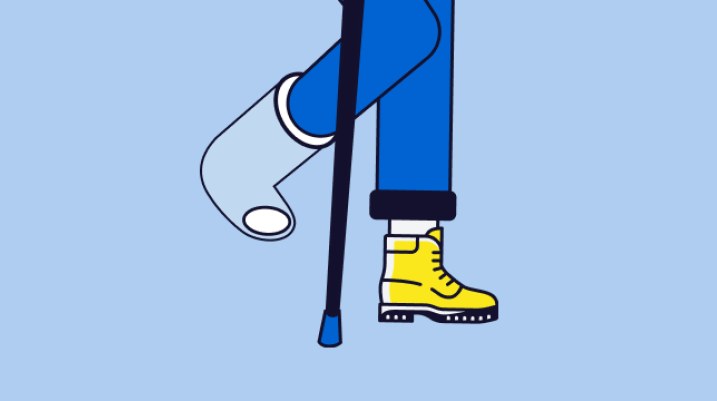Next Steps: What To Do After Getting Injured at Work

Accidents can happen in any workplace, whether you’re on a construction site or in an office. Workers’ compensation benefits can help you get covered for medical costs, lost wages, and more. While this benefit is available across the United States, different states have different laws and regulations about workplace injury benefits. It’s important to check your local laws to make sure you don’t lose out.
Here are some steps that are important to take after a work injury, regardless of where you live.
Report the Incident as Soon as Possible
To make a workers’ compensation claim, the injury or illness you suffered must happen on the job and/or because of your work duties. A number of injuries may qualify — slip and fall accidents, exposure to toxic substances, back injuries, and repetitive motion injuries, to name a few.
In every state, it is a legal requirement to notify your employer of your injury. In some states, this notice must be in writing. Although it’s not always a requirement, putting a notice in writing is always recommended, since unfortunately an employer can be less-than-honest and claim that they were never notified. States have different deadlines for when your employer has to be notified after an injury happens (or you become aware of it), ranging from “as soon as possible” to 180 days. See a complete list of deadlines by state here.
Be aware that your employer according to the law might be different from the team you work with and report to on a daily basis. If you were hired through a staffing agency, for example, who provides your benefits and issues your tax documents, they are the business that must be notified.
This step is also essential to ensuring that any medical treatment you seek is properly covered by workers’ compensation insurance.
Seek Medical Treatment
Be sure to prioritize your health. In an emergency situation, seeking medical help should always come before anything else. In non-emergency situations, after notifying your employer, getting treatment is an important next step.
Not only do injuries typically respond best to immediate treatment, but it becomes harder to connect the injury to the accident the longer you wait. Although the specifics vary by state, employees generally must undergo an evaluation by an approved medical provider of the employer’s choosing. If you decide to seek a second opinion, there may be restrictions depending on where you live. An attorney can help ensure that your rights are protected throughout this process.
If the injury limits your ability to work, be sure to follow the recommendations of your provider. If you are unable to go to work over a certain number of days, there is usually a “lost wages” benefit available.
Manage The Paperwork
As a government program, workers’ compensation can be bureaucratic. There can be lots of paperwork and forms to manage. Your employer is responsible for giving you forms to fill out for the insurance provider and state workers’ compensation board. They should also inform you about your rights and benefits under workers’ compensation law, and information about returning to work.
It’s best to document everything that you can. That can include taking pictures of damage caused by the injury, writing down details provided during doctor’s appointments, and keeping track of receipts for expenses incurred due to your injury. If the injury was caused by an accident, you might also want to note down witnesses of the accident, if possible.
Throughout the process of filing a claim, you may encounter a variety of people and professionals. It’s important to write down the names and information of the people you encounter. It may be helpful to get a copy of a business card, where relevant. This is especially important when it comes to the healthcare providers and their recommendations. Try to get these in writing whenever possible, including any work restrictions.
Provide Updates to Your Employer
Keep your employer in the loop about your injury or illness. Follow-up appointments and test results help document your efforts to follow doctor’s orders and demonstrate if your condition is preventing you from working.
File an Appeal if Necessary
If your claim is denied for any reason, you can appeal the rejection. The appeals process varies from one state to the next, so be sure to contact a workers’ compensation attorney in your area to give yourself the best chance to receive the benefits you deserve.
Contact a Workers’ Compensation Attorney
If you’ve been hurt or gotten sick on the job, it’s best to contact a workers’ compensation attorney who knows the ins and outs of your state’s laws. Employers, insurance companies, and your state’s workers’ compensation board are all extremely experienced and may seek not to pay out what you’re due. In some cases, an employer may falsely misclassify you as an independent contractor, and deny coverage of benefits. Find out more by scheduling a free legal case evaluation now.
Injured? Getting the compensation you deserve starts here.

Injured?
Not sure what to do next?
We'll guide you through everything you need to know.
